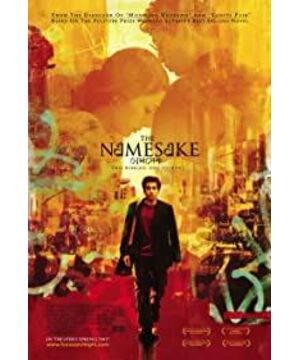Ashoke and Ashima have to wait for their grandmother far away in Kolkata to give the newborn a good name: "It doesn't matter, we all have two names. It will not be too late to pick up a scientific name when we grow up." The American doctor insisted kindly, "Sorry, in this country." , The baby’s birth certificate must be registered with his name before he can be discharged.” So the boy was called Gogol, who had the same name as the famous Russian writer with strange temperament, and was often ridiculed by his companions for this. It was not until many years later that he learned the origin of the name from his father.
Ashima complained to a colleague that his son would rather go on vacation with his girlfriend than go home to see his parents: "Tell me, what kind of girl would be named Maxine?" The American colleague shrugged and downplayed: "Maybe it's a boy at all?"
Ashima hits Called to the hospital to ask about her husband’s condition, “My last name is Ganguli, Ganguli, I’ve spelled your name five times on this call.” After
her husband passed away and his children got married, Ashima decided to go back to Calcutta and took the daughter-in-law of a doctor of literature. Agreeing: "It's just like your name, Ashima means limitless, no boundary" (It's just like your name, Ashima means limitless, no boundary).
I don't know whether this obsession with naming can only be understood by Easterners. Jenny or Mike, Lisa or John do not carry such memories and expectations. Even Gogol, as the core of the whole story, can be regarded as a metaphor in addition to commemorating his father's past. Interestingly, Ritz’s movie viewing manual concludes that the core question "The Man of the Same Name" tries to explore is "What does it mean to be an American family?". This is a typical American interpretation of innocence and arrogance.
View more about The Namesake reviews











